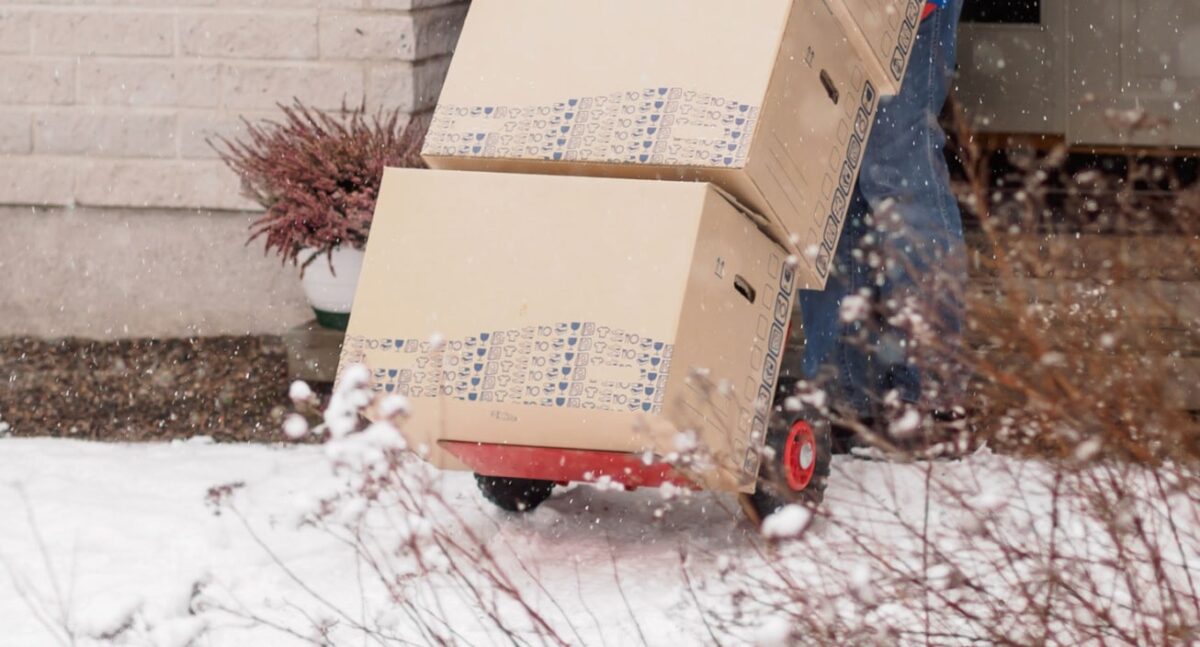If you’re planning a NJ move in the future, one of the best ways to reduce stress and save money is by paring down your belongings. After all, the less stuff you have, the less it will cost to move. Plus, if you have a lot of items that are still in good condition, you can sell it at a garage or estate sale and use that extra money to offset other moving expenses.
However, as anyone who has tried to declutter will know, it’s not an easy process. Unless you’re a dedicated minimalist, chances are you probably haven’t really considered the importance of every item you own. It’s all too easy to accumulate stuff the longer you live in one place. In fact, many people are surprised by how much they own when they do end up moving. Trying to organize and go through everything can feel overwhelming, but there are a few things you can do to make the process easier.
Start Early to Ensure You Have Enough Time
It might be obvious advice, but it’s important to have enough time so you can make thoughtful decisions when decluttering. You don’t want to accidentally throw out a family memento because you were too strapped for time nor do you want to keep everything you own! When you start depends on the size of your home. If you’re living in a one-bedroom apartment you might only need to start two months before your move. On the other hand, if you live in a large four bedroom house, you might want to start six to 12 months beforehand.
Besides giving you time to sort through your belongings, decluttering your home early makes your house easier to sell as it makes it easier for your agent to stage. Plus, you’ll have more time to do research on the items you own and their resale value. So instead of selling everything in a large garage sale, you can sell in-demand items on eBay or other platforms.
Prepare a Simple Checklist for Moving Day
People hold onto clutter for a variety of reasons and there are a few categories most items will fall into when it comes time to declutter:
- Old items you no longer use – these include clothes that don’t fit, books you won’t read, boxes of cords and cables you’re holding onto just in case, and so on.
- Things you have too many of – it’s easy to accumulate small items over the years like towels, dishes, water bottles, silverware, etc. and add them to your collection instead of replacing your old stuff
- Stuff that is past its prime – if you haven’t fixed an item up yet, it’s a good time to get rid of it. So toss those holey socks, broken electronics, expired spices, etc.
Even if you start early, it doesn’t mean anything if you’re decluttering haphazardly. You should draw up a plan to help you break down this process into multiple steps. One of the best ways to separate the job is to do a single room or area once a day. Start with rooms that you use the least such as the attic, basement, garage, or guest bedroom. Chances are you’ll have a lot of stuff stored here that you probably forgot about!
Use Up Consumables Before Moving Day
An easy way to reduce your clutter is to use up anything consumable before moving. Start this process as soon as you have decided you’re going to move as it might take you some time to go through everything in your pantry and storage. While you’re there, check the expiration dates on things like canned food, spices, condiments, etc. and throw out any that are expired.
Consumables aren’t just limited to food items. Other things that fall into this category include:
- Personal care items – shampoo, soap, lotion, mouth wash
- Household products – cleaning supplies, paper products, laundry detergent
- Reading materials – newspapers, magazines, books
Make it a goal to bring as few consumable items to your new house as possible. It will take some planning, but you’ll thank yourself when it’s time to unpack!
Follow the One-Touch Rule for Efficient Packing
If you haven’t heard of this rule, it’s simple – if you pick something up, you have to deal with it. You cannot put it back down to sort out later. So be careful what you pick up while decluttering if you’re not ready to decide whether you want to keep an item or not!
It’s easy to get sidetracked when decluttering. Maybe you hesitate on an item and put it to the side, but then you completely forget about it. While having one or two extra items might not be a big deal, it’s all too easy for this number to balloon up to a dozen or more small things. Don’t go easy on yourself! Make sure to stick to the one-touch rule no matter how big or small the item is. You might need to take some time to mull over the decision, but you’ll ultimately progress faster with decluttering by following this method.
Don’t Buy New Stuff Before Move
This should come as a no-brainer, but you don’t want to increase the amount of things you own before the move. Anything new you bring will be one more thing you’ll need to pack. Your goal is to use up as much stuff as you can! If you’re a few months out from your move and you notice you’re running out of some items, get a smaller size than you normally would. For example, buy individual rolls of toilet paper or paper towels instead of the large packs. Yes, individual items are more expensive, but do you really want to move an opened pack of paper towels?
The same goes for larger items. There’s no reason to buy that chair or table right before you move. Not only are you increasing the potential cost of your move, you might not even like the way that item looks in your new home. Before making any kind of purchase, consider if you really need that particular item right now or if it can wait until you move. Chances are, it can probably wait.
Encourage Everyone to Get Involved
There’s no reason you should do all the decluttering yourself if you have a family. Plus, it will go a lot faster if you get some help from family when declutter and everyone will hopefully be a lot happier. When getting others involved, make sure to set up some ground rules. Maybe that means that teaching them the one-touch rule or perhaps setting an expectation to fill at least one trash bag per room.
If you have very young children, you can still get them involved and have them declutter their own things. It will take time and patience. If you’re short on both, then it will be up to you to do it. Should you choose to get them involved don’t make things too complicated. Ask them if they still play with particular toys and/or if they’re ready to let go of a few. Some children might be very possessive of their things, so it might be better to ask them to point out their most favorite toys, clothes, etc.
With your partner, you should make sure that they declutter their spaces and set up the same rules. Some people are natural packrates. If you think your partner is one, you might need to check in on them to make sure they’re actually getting rid of items. Encourage them to be honest with their assessment so they can figure out what they truly use, need, and/or love.
Go Through Everything
Decluttering isn’t a short process. It’s time consuming, can save you money, and requires a lot of emotional and physical bandwidth. However, in order to get the most out of this process you should go through every single item you own from your furniture down to a pack of screws. Don’t forget to go through all your cabinets, drawers, and so on and reassess every gadget, tools, decor, clothes, etc. Some items will be easier to decide on versus other, more sentimental ones. However, be brutal when culling! Think about how easy it will be to pack and unpack once you get to your new home.
Once you’ve pruned your belongings, sell or donate whatever is in good shape. You can host a garage sale to get rid of the majority of your items. For whatever is left, give it away to friends, family, neighbors, etc. for free. You can donate whatever is left. For items that are past their prime, throw them out. Make sure to ask your sanitation department what to do for bulky items and electronics as there’s often a separate system.
Get Decluttering!
When moving into a new home, the last thing you want to do is bring a lot of old, dusty, and/or broken stuff with you that you’ll only have to get rid of later. Decluttering can save you money and time. In fact, it might even give you some extra pocket money when it comes to refurnishing your new home. Once you’re ready, give professional NJ movers a call to reduce your stress.



